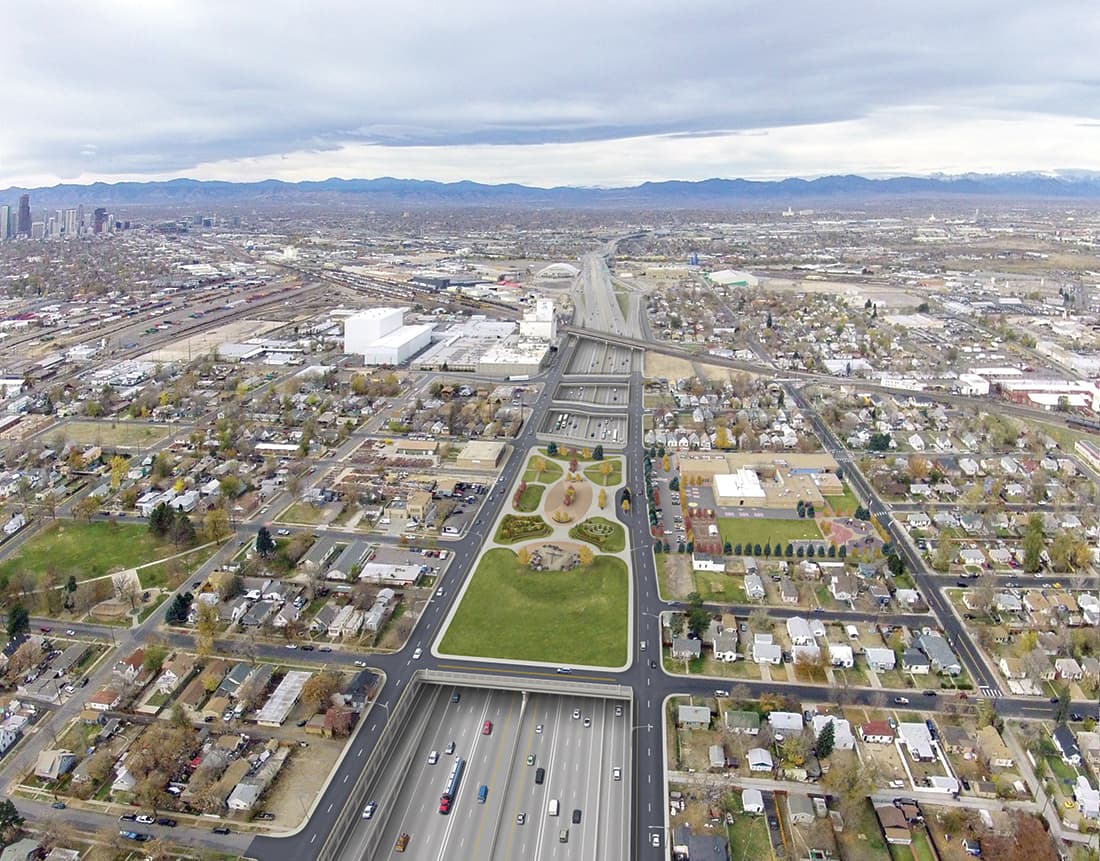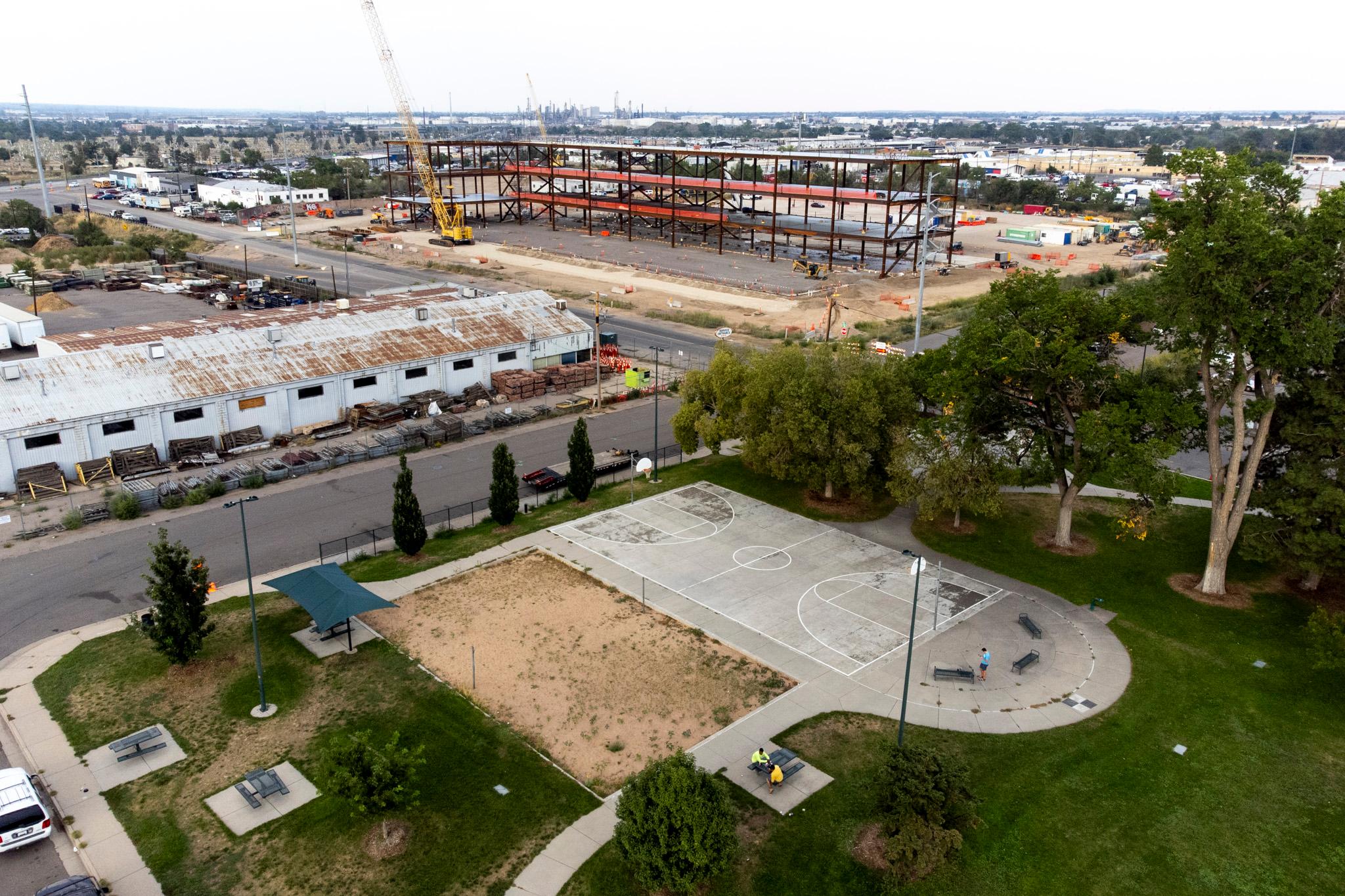
CDOT and city officials want a new I-70 through north Denver, 10 lanes wide, dug into the earth between Brighton and Colorado boulevards, with new 46th Street frontage roads on the north and south sides of the highway. Naturally, it's complicated.
Altogether, it will be 247 feet wide, compared to 95 to 100 feet for the existing viaduct.
To make room for the project, CDOT needs to remove 56 homes and 18 businesses. The state had bought 31 homes already.
Here's why the I-70 plan is contentious.
Neighborhood and environmental activists say “the ditch” would cause even greater damage to air quality and to the fabric of the community than the viaduct that carved through Elyria, Swansea and Globeville in 1964.
They’ve filed a lawsuit against the Environmental Protection Agency over new air quality standards that remove certain high pollution days from its analysis. They say the changes were implemented without appropriate notice or opportunity for the public to comment and allege that without those changes, the I-70 expansion would violate the Clean Air Act.
With calls to “ditch the ditch,” these activists want the new I-70 to go around the city, along the corridors created by I-76 and I-270. Then 46th Street could be restored and the neighborhoods reunited.
This video shows how opponents imagine this new street:
(City and state officials say a re-route was considered and rejected for good reasons, and a restored 46th would be a major thoroughfare with a lot of truck traffic, not the tree-lined boulevard imagined by advocates.)
So they're gonna put a park on it.
To make up for the dislocation, CDOT plans to build a four-acre park over the lowered I-70 between Clayton and Columbine streets, next to Swansea Elementary. The cover — or cap — is similar to parks built over highways in Dallas and Seattle; CDOT considers it part of its mitigation, "as major as any other engineering component," according to CDOT spokeswoman Rebecca White.
Long-term maintenance of the park is up to the city of Denver, which is looking at some sort of public-private partnership to manage it.
The city of Denver officially supports CDOT’s plans and has pledged $37 million of its own money and another $46 million in in-kind contributions like waiving permit fees for the $1.2 billion expansion.
There's also another related group of controversial projects.
An intergovernmental agreement between the city and CDOT also calls for the city to construct major stormwater projects that are controversial in their own right.
The total project cost includes $100 million just for property acquisition and relocation costs. CDOT will pay for owners and renters alike to move into new housing, and 14 renters have become homeowners as a result of relocation assistance, CDOT said, though those homes are usually in different communities.
The Federal Highway Administration issued a record of decision -- essentially a green light to start construction -- in January 2017, but opponents vow they'll keep fighting the project in court.












